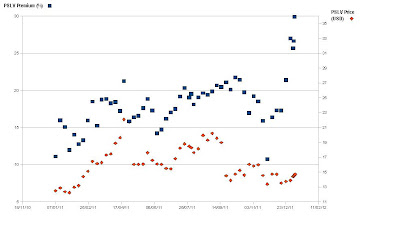Central banks shifting to gold

There has been much talk about central banks becoming net buyers of gold since the start of the economic crisis in 2008. I want to elaborate on that. The world gold council (WGC) yearly reports on the amount of central bank gold sales. As of 2010, central banks have shifted from net sellers to net buyers of gold ( Figure 1 ). And this has only happened recently! As we look at history, during the inflationary years of 1980, central banks were buying gold. Then a period of gold selling occured from 1989 till 2009 where gold went into a bear market. Central banks only shifted to buying gold since 2010. Which means we are going straight back into a bull market of gold. Figure 1 The WGC expected growth in gold buying from central banks to continue throughout 2012 . The projected growth of central bank gold buying was projected to be 336 tonnes of gold per year in 2011 ( Figure 2 ). Their predictions were right as central banks added 450 tonnes during 2011 . Figure 2 By far, the increase in...













